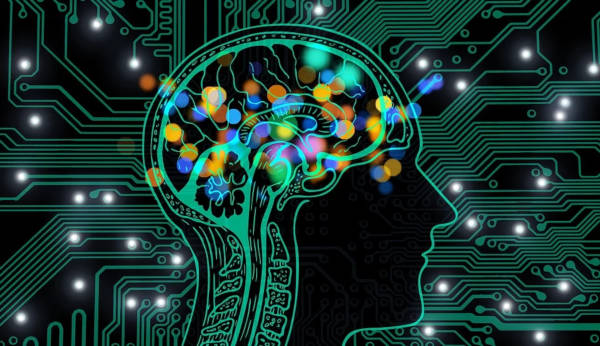Maurice Conti, chief innovation officer, Alpha, a Barcelona machine learning firm
Maurice Conti,巴塞羅納機器學習公司Alpha的首席創(chuàng)新執(zhí)行官,
focusing on creating technologies that could reshape fields like health and energy.
Telefonica專注于創(chuàng)造可能重塑健康和能源等領域的技術。
"We recently built (an A.I.) prototype to assess teamwork and collaboration.
“我們近期創(chuàng)建了一個評估團隊協(xié)作和合作的(人工智能)原型。
Our early results show that A.I. can perform at the same level as a trained human psychologist observing a team doing the same exercises,
我們早期結果顯示,人工智能在觀察團隊做相同練習時的表現(xiàn)和一位訓練有素的人類心理學家一樣,
except (A) they're machine systems so you don't need the psychologist--it's super scalable;
除了(A),它們是機器系統(tǒng),所有你不需要心理學家——擴展性超強;
and (B) we can do it in real time, whereas a psychologist has to observe and collate results, and give an opinion or rating on collaboration."
以及(B)我們可以實時進行任務,而心理學家需要觀察、整理結果,并對合作給出建議或評級。”
"I think you can apply these technologies to just about every small facet of any industry.
“我認為你可以把這些技術應用到任何行業(yè)的每一個小方面。
You'll get better at designing things like wind turbines or building curtain walls for buildings
在設計風力渦輪機或建筑幕墻等設計方面會更好,
because we'll have more data--better data--and a better understanding of that data.
因為你們會得到更多數(shù)據(jù)——更好的數(shù)據(jù)——以及對這個數(shù)據(jù)有更好的理解。
A.I. is sort of a peanut butter you can spread across (multiple industries).
人工智能就像是一種花生醬,你可以把它推廣到(多個行業(yè))。
With a precise idea of the conditions this thing I'm designing will see in real life, I can design it better."
對我設計的這個東西在現(xiàn)實生活中會看到的情況有一個精確的概念,我可以把它設計得更好。”
Rana el Kaliouby, cofounder and CEO, Affectiva, a venture-backed company whose pioneering "Emotion A.I."
Rana el Kaliouby,風投公司Affectiva的聯(lián)合創(chuàng)始人兼CEO。該公司首創(chuàng)的“Emotion A.I.”
is used by brands in the auto industry, education, and health care.
被各知名公司應用于汽車工業(yè)、教育和醫(yī)療保健等領域。

"I don't see a world in which the robots are going to take over. I really worry about the more imminent threats of A.I. around bias, though,
“我沒有看到一個機器人會接管的世界。不過,我真的擔心,因對人工智能的偏見而產生威脅,
and not understanding how these technologies are going to get deployed and used.
以及對這些技術將如何被部署和使用的不了解。
We're very big advocates of that (broad perspective)".
我們是那個(廣義觀點)的極力擁護者。”
"In A.I., we deal with facial recognition. If you train the face detector with mostly faces of, I don't know, white men,
“在人工智能中,我們處理面部識別。如果你主要用白人的面孔訓練面部探測器,
and then you go to Africa or Asia, it's not going to work.
那么當你去非洲或亞洲,這個就不管用了。
I'm originally from Egypt--I'm like, 'We need women who are wearing hijabs to be in the data set!'
我來自埃及——我認為,‘我們的數(shù)據(jù)庫中需要帶著頭巾的女性!’
"We like to think of the vehicle as an example of what this advanced interaction with technology will look like.
我們喜歡把交通工具看作是這種先進技術交互的未來面貌的一個例子。
We can also take that into the home or the office. Last fall, (Affectiva) announced a partnership with SoftBank Robotics to make social robots.
我們也可以把它帶回家或帶到辦公室。去年秋天,(Affectiva)宣布和軟銀機器人合作生產社交機器人。
We're going to be in the lead on the emotion and social brain of the robot."
我們將成為機器人情感和社會腦的領導者。”
Mark Nitzberg, Executive director, Center for Human-Compatible A.I. (CHAI) at UC Berkeley, and principal and chief scientist, Cambrian Group,
Mark Nitzberg,加利福尼亞大學伯克利分校,人類兼容人工智能中心(CHAI)執(zhí)行主任、Cambrian Group校長兼首席科學家。
which works with companies like GE and BMW on planning, strategy, and design.
Cambrian Group與通用汽車和BMW等公司在規(guī)劃、策略和設計方面有合作。
"(CHAI's) mission is to reinvent A.I. in a way that's safe and compatible with human objectives and preferences.
“(CHAI)的任務是以一種安全和符合人類目標和偏好的方式重塑人工智能。
Since the beginning of engineering, a system would be built to achieve the objectives of that system.
自工程開始以來,將建立一個系統(tǒng)來實現(xiàn)該系統(tǒng)的目標。
As we delegate more and more to such systems, they achieve their objectives at the expense of our preferences.
當我們把越來越多的任務交給該系統(tǒng),它們會犧牲我們的偏好,來實現(xiàn)自己的目標。
For example, our preference is not to have our arm ripped off when we walk by a robot.
例如,當我們走到機器人旁邊,我們的偏好是自己的手臂不會被折斷。
You would think it's an obvious preference, but it's not programmed into every robot on the assembly line.
你會覺得這種偏好是顯而易見的,但并不是裝配線上的每一個機器人都被組裝了這種程序。
That's why many are in cages.
所以很多機器人被放在箱子里。
"There may be some kind of intelligence in A.I., but it's not a mechanical copy of human intelligence.
“人工智能中可能存在某種智能,但它不是人類智能的呆板復制。
If you asked (CHAI faculty member) Stuart Russell,
如果你問(CHAI教職工)Stuart Russell,
'Will you create consciousness in a machine?'--you couldn't give him $5 billion to do that.
‘你會在機器中創(chuàng)造意識嗎?’——你不能給他50億美元來做這個。
He does not know how to do that, and I think most of the A.I. community would say the same."
他不知道該怎么做,我想人工智能界的大多數(shù)人也會這么說。”
譯文由可可原創(chuàng),僅供學習交流使用,未經許可請勿轉載。













